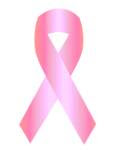SALT LAKE CITY, May 13 /PRNewswire-FirstCall/ -- A newly awarded U.S. Patent will protect TechniScan, Inc's., (OTC Bulletin Board: TSNI) novel way to image, biopsy and treat breast cancer.
U.S. Patent 7,699,783 B2 titled "Method for Imaging and Treating a Breast" covers the company's design of a 3-D, Warm Bath Ultrasound™ system that images while a woman lies prone on a table with her breast comfortably immersed in a warm water, state-of-the art scanning system.
Since she is lying on a table with her breast through an opening, the breast is in a pendant, uncompressed position that allows for a true three-dimensional image to be constructed.
"Imaging of the non-compressed pendant breast, similar to positioning for breast MRI, provides reproducible, 3-D anatomically accurate detail," said Yuri Parisky, M.D., medical imaging director at Mammoth Hospital in Calif. "It is the ideal position to image the breast."
A vital element of the new patent is the table design of the Warm Bath Ultrasound™ (WBU™) system, which rises above the water bath tank after the scan. This functionality has three key benefits: The woman remains on the same table for diagnostics and treatment, it maintains the known position of the tumor or lesion and allows the three-dimensional image to be utilized to guide treatment instruments.
source: PR Newswire
5.23.2010
Patent Awarded to the Design of TechniScan's Unique 3-D Breast Imaging System
5.17.2010
New Concerns About Radiation And Breast Cancer
It is well established that exposure to ionizing radiation can result in mutations or other genetic damage that cause cells to turn cancerous. Now a new study led by researchers with the U.S. Department of Energy's Lawrence Berkeley National Laboratory (Berkeley Lab) has revealed another way in which radiation can promote cancer development. Working with cultures of human breast cells, the researchers discovered that radiation exposure can alter the environment surrounding the cells so that future cells are more likely to become cancerous.
"Our work shows that radiation can change the microenvironment of breast cells, and this in turn can allow the growth of abnormal cells with a long-lived phenotype that has a much greater potential to be cancerous," says Paul Yaswen, a cell biologist and breast cancer research specialist with Berkeley Lab's Life Sciences Division.
source: Medical News Today
5.03.2010
Breast MRI Could Reduce Local Breast Cancer Recurrence Rates, Study Suggests
The use of preoperative breast magnetic resonance imaging (MRI) prior to surgical intervention (for the treatment of breast cancer) can reduce the number of local (confined to the breast) cancer recurrences at follow-up, according to a study to be presented at the ARRS 2010 Annual Meeting in San Diego, CA. MRI of the breast is a noninvasive medical test that helps physicians diagnose and treat breast cancer.
“Local and regional recurrences after breast-conserving surgery are rare events,” said Valeria Dominelli, MD, lead author of the study. “However young age and breast density put patients at a greater risk,” said Dominelli.
The study, performed at the University of Rome “La Sapienza” in Rome, Italy, included 49 patients with a local recurrence that was detected after surgical treatment of the primary carcinoma. Ten patients had a contrast-enhanced MRI prior to surgery while the remaining 39 patients did not. Contralateral carcinoma (cancer in the opposite breast) and local recurrence were seen significantly more in patients who did not receive an MRI examination prior to surgery.
“Our study suggests that preoperative breast MRI staging allows for a significant reduction in the number of local cancer recurrences at follow-up,” said Dominelli.
source: ARRS
5.02.2010
BSGI Offers Clear View of Breast Tumor Response to Neoadjuvant Chemotherapy
NEWPORT NEWS, Va., April 30 /PRNewswire/ -- A new study, presented at the American Society of Breast Surgeons Annual Meeting in Las Vegas, found that Breast-Specific Gamma Imaging (BSGI) is highly accurate in monitoring the response of breast cancers to neoadjuvant chemotherapy.
BSGI, a molecular breast imaging technique (MBI), has been proven in several other studies to improve breast cancer detection and aid in the management of patients with difficult to diagnose breast tissue.
The study, conducted by Dr. Christine Teal, Chief of Breast Surgery at The George Washington University Hospital in Washington, D.C., and her team of researchers, found that BSGI accurately monitors tumor response to neoadjuvant chemotherapy.
According to Dr. Teal, "BSGI provides excellent specificity and sensitivity in determining initial tumor size as well as accurately reflects response to neoadjuvant chemotherapy. This allows for more precise surgical planning prior to definitive surgical procedure in this population of women."
source: PR Newswire
